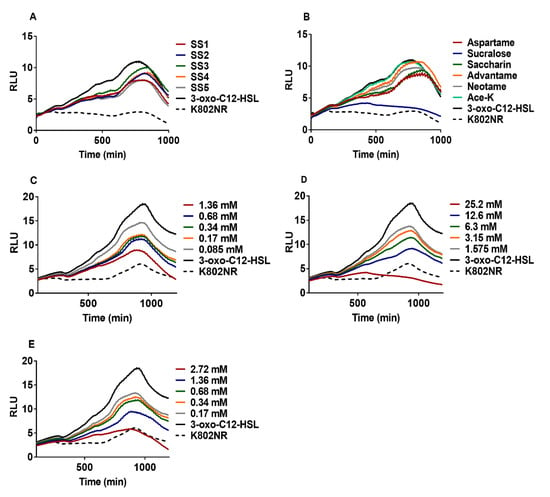New research by scientists in Ben-Burion University published in Int. J. Mol. Sci. 2021, 22(18), 9863, discovered that some artificial sweeteners hurt the gut flora to quorum sensing. The study shows that aspartame, sucralose, and saccharin have significant inhibitory actions on the Gram-negative bacteria N-acyl homoserine lactone-based (AHL) communication system. The study concluded that artificial sweeteners disrupt communication, indicating that artificial sweeteners may be problematic in changing the microbiome and potentially increasing the risk of disease. Three less common sweeteners, acesulfame potassium (Ace-K), advantame, and neotame, did not have this effect. @ https://www.mdpi.com/1422-0067/22/18/9863/htm
Israeli researchers discovered that sweeteners hurt gut bacteria ability to quorum sense
Despite having been tagged as safe and beneficial, recent evidence remains inconclusive regarding the status of artificial sweeteners and their putative effects on gut microbiota. Gut microorganisms are essential for the normal metabolic functions of their host. These microorganisms communicate within their community and regulate group behaviors via a molecular system termed quorum sensing (QS). In the present study, we aimed to study the effects of artificial sweeteners on this bacterial communication system. Using biosensor assays, biophysical protein characterization methods, microscale thermophoresis, swarming motility assays, growth assays, as well as molecular docking, we show that aspartame, sucralose, and saccharin have significant inhibitory actions on the Gram-negative bacteria N-acyl homoserine lactone-based (AHL) communication system. Our studies indicate that these three artificial sweeteners are not bactericidal. Protein-ligand docking and interaction profiling, using LasR as a representative participating receptor for AHL, suggest that the artificial sweeteners bind to the ligand-binding pocket of the protein, possibly interfering with the proper housing of the native ligand and thus impeding protein folding. Our findings suggest that these artificial sweeteners may affect the balance of the gut microbial community via QS-inhibition. We, therefore, infer an effect of these artificial sweeteners on numerous molecular events that are at the core of intestinal microbial function, and by extension on the host metabolism.

